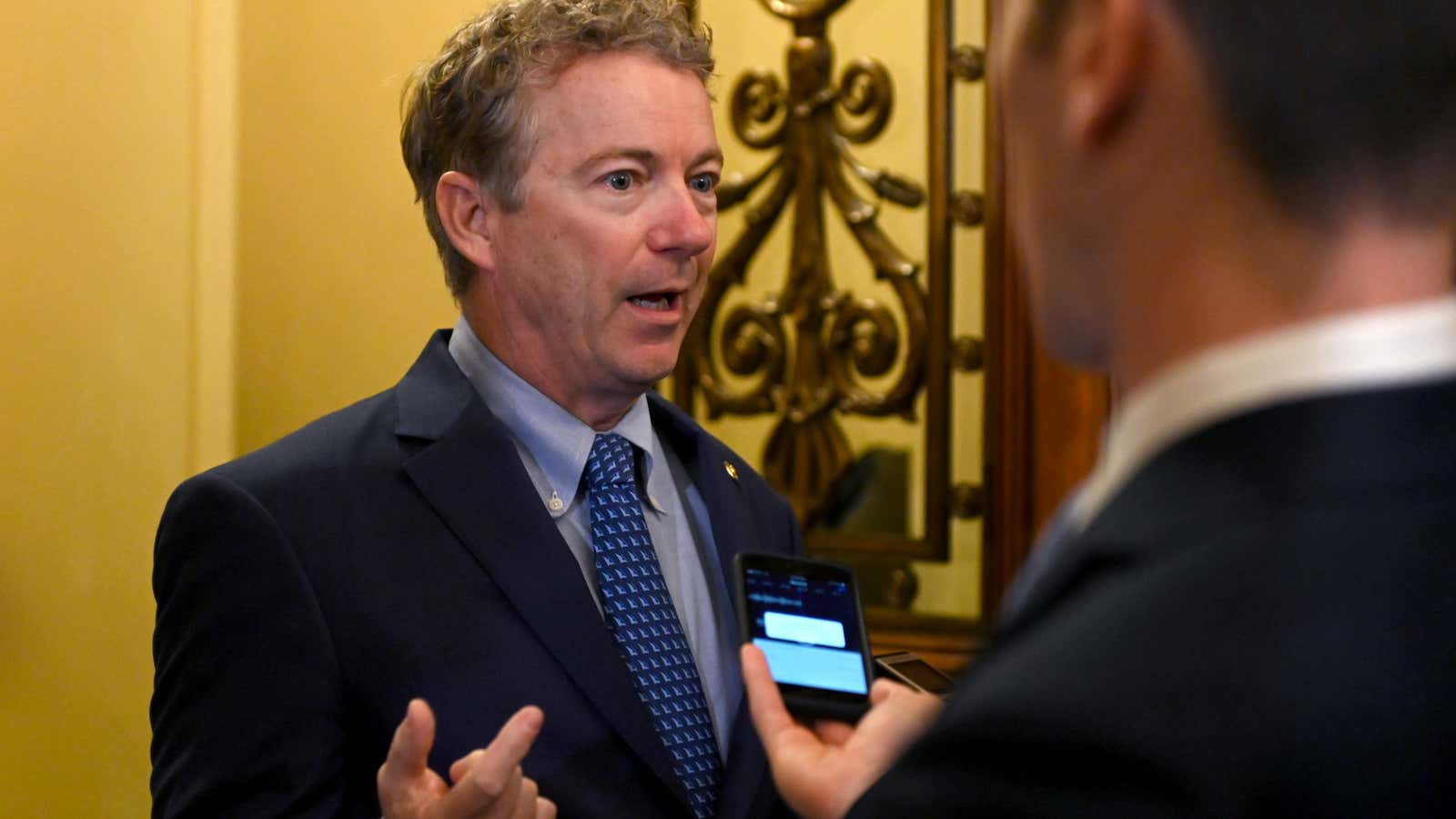It is the same dance every few years. The US Congress, under threat of shutdown or default, passes a new budget. This year’s budget passed with relatively less drama than years past, but will increase federal spending by $320 billion (in addition to the $1 trillion in new debt it racks up each year) for the next two years.
Adding more debt during an economic boom is never ideal, but as budget expert William Gale points out, the increase in spending is in line with inflation and population growth. Nonetheless, cue the fiscal hawks: Democrats who complain about tax cuts, and Republicans who complain about spending. And there’s always someone (we’re looking at you, Rand Paul) who makes a fuss about an extremely important, but relatively low-cost program, like the 911 victims compensation fund. But all the objections are hard to take seriously, because all this performative drama detracts for the real budget problem no one will address: entitlements.
The current federal debt is about $22 trillion. The additional spending in the new budget is expected to add another $1.7 trillion over the next 10 years. This is not a small amount of money, but it is manageable if interest rates stay low. This is a big if, however, especially because most of the debt is financed with short-term Treasury bills. If rates go up, financing the debt will get expensive fast when it needs to be refinanced, and at that point interest payments could eat into the budget and demand spending cuts. The good news is much of this new spending is discretionary, including more money for the military, which means cutting spending is relatively easy compared to slashing an on-going entitlement, like Social Security. Cutting the military budget isn’t easy, but it is politically much less painful than cutting everyone’s Social Security checks.
Entitlements are not only harder to cut, they pose a bigger threat and their future obligations dwarf the current debt. The unfunded liability for Social Security, over the next 75 years, is $13.9 trillion, Medicare—without any changes to expand it—will cost another $42.3 trillion. And that’s just the start. The House Ways and Means committee just introduced bill bailing out multi-employer pensions last week. If it becomes law, the government is setting a precedent for future bail outs to the Pension Benefit Guarantee Corporation, a quasi-government agency that insures corporate pensions. The projected short-fall for those pensions is another $600 billion. It is hard to imagine the federal government bailing out corporate plans, but not state and local plans–which by some estimates faces a $4.16 trillion short fall.
For politicians, it is easier to complain about discretionary spending. Most voters don’t flinch at cuts to the arts, or science, or foreign aid. Most voters are equally unbothered by calls to tax someone else, such corporations or anyone in a higher tax bracket. But talk of entitlement reform is called the third rail of US politics for a reason: No one will tolerate any talk of a cut to their old age benefits or a payroll tax increase (and both are necessary to pay for these programs). The new budget does include some small Medicare cuts, but they don’t begin to address the scope of the problem. If politicians and budget hawks were honest and really cared about debt sustainability, the conversation would be about how can we finance entitlements and how everyone will have to pay something.
